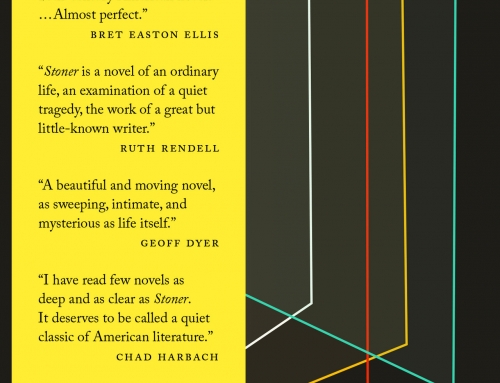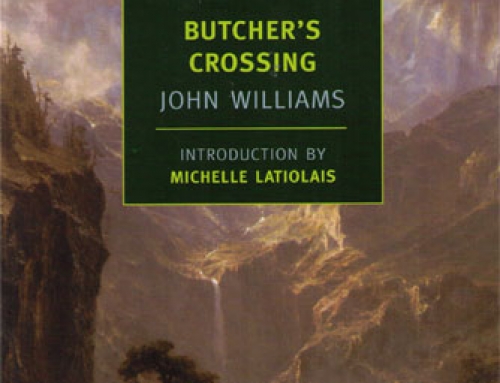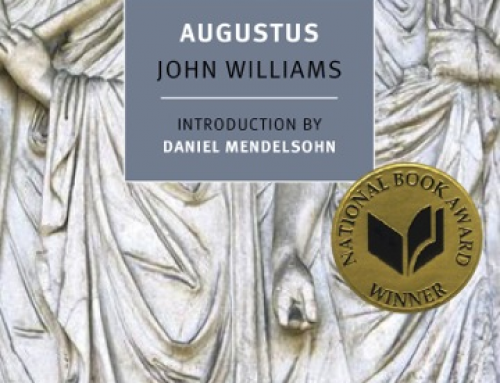"The Sleep of Reason" by John Williams Originally published in the 1981 issue of Ploughshares.
John Williams published four books: Nothing But the Night (1948), which he later renounced; Butcher’s Crossing (1960) (my review here); Stoner (1965) (my review here); and Augustus (1972) (my review here). Between 1972 and his death in 1994, he was working on an ambitious work looking at war and fine art forgery (though it seems the years he actually spent working on this book were 1976 to 1980*). Williams himself was a veteran of World War II, and he rarely spoke about it to anyone (though certainly we find its echos in all of his works). He never finished this work, which he was calling The Sleep of Reason. Still, we have portions of it, one of which was published by Ploughshares in their 10th anniversary issue in 1981.
In general, I’m against excerpts being published in place of short stories, though at times I’ve found them strong and they’ve made me want to read the entire book. Here, I am very glad that we have this excerpt because it’s about all we will ever get. Somewhere other passages exist, including some detailing war experiences, and a lengthy excerpt was also published in The Denver Quarterly in 1986, in an issue devoted entirely to Williams.
Ah! It’s very sad that Williams did not finish this, as it promised to be an exceptional piece (as were three of the four novels he published). It appears that he felt it was promising as well, and that if we’re looking for a reason we don’t have the finished book we can probably blame alcohol and cigarettes.
The title of the piece comes from Goya: “The sleep of reason brings forth monsters.” (Who came up on this blog just a month ago when we looked at the cover of Tyrant Banderas here).
The main character is Paul Mathews, an administrator and curator at the Washington Institute of Art. The book opens with him looking at a beautiful painting by Andrea Mantegna, simply titled “Peter at the Tomb of the Resurrected Christ.” It’s an important piece in a new collection the museum has acquired for a few months (and hopes to get permanently if everything goes just right). This is the Tyler Collection, pieces owned by an eccentric agoraphobe who hasn’t let anyone see the paintings he has in over fifty years. All Mathews can say when he looks at the painting, though, is, “There’s something wrong with it.”
With him in the room is the Director of the Institute, an old friend named Theo Dietrich. What’s wrong, he asks — after all, the piece was authenticated in 1928 — but Mathews cannot say. Nothing looks wrong; it’s just a feeling, one he hopes will go away.
This nagging feeling doesn’t go away through the remainder of the piece, showing again how good Williams is at maintaining tone and pacing, even as he introduces other aspects of the narrative.
After this introduction with Theo, the excerpt can be divided into three parts: a completely unexpected and distressing (but again, why) run-in with Mathews’ old Army Captain, Dave Parker; a lunch with Larry Philips, a board member most responsible for getting the Tyler Collection; and an evening at home with his beautiful wife.
Throughout it all, he can’t quite push aside his misgivings about the Mantegna, and it leads to reflections on his work in general (and, I’m sure, though we can’t know, all of the other themes running through this unfinished novel):
A feeling of helplessness came over Paul Mathews, as he sat alone in his office on the fifth floor of the Washington Institute of Art on a bright morning in early spring. It was a feeling that he had had before, but seldom had it come upon him with such intensity; he thought of what time and man and the accidents of history had done, and would do, despite whatever efforts he and others like him might raise against the tides of destruction. In time, all the Mantegnas, the Titians, the Michelangelos, the Raphaels would, like living flesh, wither and dry and return to the elements of which they had been composed. It seemed to him at that moment that his curacy was a vain and futile undertaking, a fruitless action against that which could not be stayed.
Some day, I will get the other excerpt published in The Denver Quarterly. Then, I guess, we just continue to be thankful for what we have, for it all could be lost far too soon.
*Much of the detail I refer to in the first paragraph comes from a great lengthy piece on John Williams by Alan Prendergast, published in Westword here.









Trevor – Thanks so much for this. I read and greatly admired both Butcher’s Crossing and Stoner, and Augustus is waiting patiently on the night table. I was aware of the unfinished book, but unaware that portions of it were available to read. I’m off to the library to see if I can pull them up.